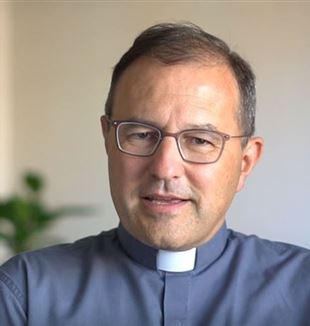
Spain: Learning from the crisis to discover what unites us
On May 4, the region of Madrid will be called to the polls. This time, polarization and dialectical violence do not have the last word. What is necessary is to recognize “what unites us”, which has surprised us during the pandemic (from PáginasDigital.es)I am watching the electoral campaign ahead of the regional elections on May 4 in Madrid with concern. The process of increasing polarization and exaggerated dialectical violence, however predictable, cannot be perceived as something inevitable, the result of the "natural" confrontation between disparate ideas. This would mean admitting that there is no common ground between us or, in other words, it would mean denying that what unites us and puts us in the same boat is, by far, greater than the legitimate discrepancies linked to the models of management of public affairs.
Sometimes it takes an exercise of reason, linked to memory, to catch "what we have in common" in action, and to realize that it is much more real, concrete and worthy of attention than the insults we gratuitously hurl at each other. Just think of the last thirteen months in which we have all had to face the same inescapable fact: the pandemic.
This period of the health crisis has brought to light a "humanity" that belongs to everyone; a way of reacting to pain, death, loneliness or anguish that makes no distinctions. I was struck to read articles in newspapers of very different orientations that describe us all: the fear of infection, the slap in the face of a reality (the virus) that cannot be avoided, the temptation to take refuge behind screens and imaginary worlds, the perception of a radical vulnerability that frightens us, the nostalgia for the embrace of our loved ones, the question about the meaning of death, the dynamic of waiting that seems to never end in the face of a continuous postponement of a return to normality, the existential anguish linked to loneliness, etc.
But in these months we have also been surprised to find ourselves together, in the same boat, dealing with issues that affect our coexistence: health, education, social services or the management of resources. The applause at eight o'clock in the evening was the clearest expression of the fact during this health crisis we have been one with those on the front line. I very much doubt that political affiliations interfered in any way with those working in an intensive care unit or for the emergency services. Likewise, the mixed mode of teaching, in-person and at a distance, has posed a common problem for our teachers. And it is clear that the need to continue to educate and the issues this raises for teachers is a common problem that transcends ideologies.
The closure of so many businesses because of Covid has resulted in economic hardship and even starvation for many people. There was little ideology when it came to meeting these basic needs. We saw how civil society (Caritas, associations, NGOs) and the social services of the different municipalities faced a crisis that could have been very serious, rowing in the same direction.
The other crisis that the people of Madrid have experienced, that of the Filomena snowstorm, has made us discover, perhaps for the first time, how real the problems of our streets or neighborhoods are, which make no distinction between ideologies. How many kilos of snow did we shovel from our sidewalks, side by side with our fifth-floor neighbors, with whom we discuss politics! If we do not turn away from concrete needs, it will be easier for the management of resources at the local or regional level, beyond the plurality of strategies, to find us united.
Pope Francis has reminded us that "worse than this crisis is the tragedy of squandering it" (Pentecost Homily, May 31, 2020). A first way to take advantage of it is to realize that the crisis has shown us that what unites us is essential and what separates us is rather incidental. The bishops of the ecclesiastical province of Madrid, for their part, concerned about "so many petty and immediatist forms of politics," have invited us to "put into practice the best politics: that which, without being subject to material interests, cultivates social friendship and effectively seeks the good of all people, especially the most vulnerable."
True experience reveals who we are as people and as a society. We have seen this happen with the crisis. So why has there been a return to violent dialectics, clearly separated from reality? Far from being scandalized by a human condition that is our own (just look at how we move in our home or family), we are surprised to recognize that the Christian experience has allowed us to embrace even those who are different from us, but are capable of generating works for the common good.
Read the article on PáginasDigital.es
I sincerely believe that the time has come for Christians to make this capacity for embrace and understanding available to all in public life, at all levels, including party politics. Thus we will respond to Francis' call, "Please, do not just observe life from the balcony, but engage, immerse yourself in broad social and political dialogue" (Pope Francis, Florence, 2015). We are interested in this form of engagement because it will be a concrete form of verification of our faith: Christ has entered history and has been recognized for his exceptional humanity, the same humanity that we are surprised to recognise among us. Of course, reality itself will be the judge of whether this capacity to embrace the other is real.